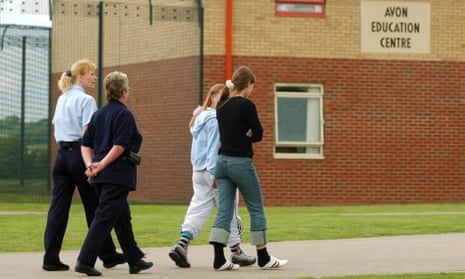The new head of the body that oversees the youth justice system in England and Wales has hit out at the government’s plans to increase the time spent by children behind bars under controversial legislation to be brought back to parliament next week.
Claudia Sturt, the chief executive of the Youth Justice Board (YJB), told MPs and peers that the proposals in the police, crime, sentencing and courts bill were not consistent with the UN’s convention on the rights of children.
She told parliament’s joint committee on human rights that there was no evidence that longer sentences improved rehabilitation and warned that increased time in custody was likely to lead to an increase in reoffending.
Sturt, who took up the post at the arms-length body, warned that the bill created a distinction between younger and older children with new proposals for minimum terms for 16- and 17-year-olds.
“It doesn’t treat them as individuals and it doesn’t take into account their childhood and their developmental state, it treats them as though they’re adults,” she said.
“That’s at odds with the convention (UNCRC) that very clearly defines a child as anyone under the age of 18; there’s no sliding scale below the age of 18 at which it’s acceptable to treat someone more or less of a child. It’s everybody under the age of 18.
“So we would have significant concerns about any provision that draws distinction between older and younger children.”
She added: “We’re not aware of any evidence that longer sentences improve rehabilitation.
“We’re concerned time in custody cements pro-criminal rather than pro-social identities and attitudes in children. That means they’re more likely rather than less likely to reoffend after release, the longer they spend in custody.
“If we behave in a way that reduces a child’s sense of worth and their belief in a constructive future and which labels and stigmatises them, it serves to increase the likelihood of offending and causing harm to the public.
“It’s not clear how a blanket increase in the term before automatic release directly supports rehabilitation or resettlement.”
The police, crime, sentencing and courts bill has been subject to significant criticism since it was announced by the government earlier this year, triggering a wave of protests under the “kill the bill” banner.
Critics have warned that measures in the bill would place significant curbs on freedom of speech and assembly, by giving police powers to curb protests.
